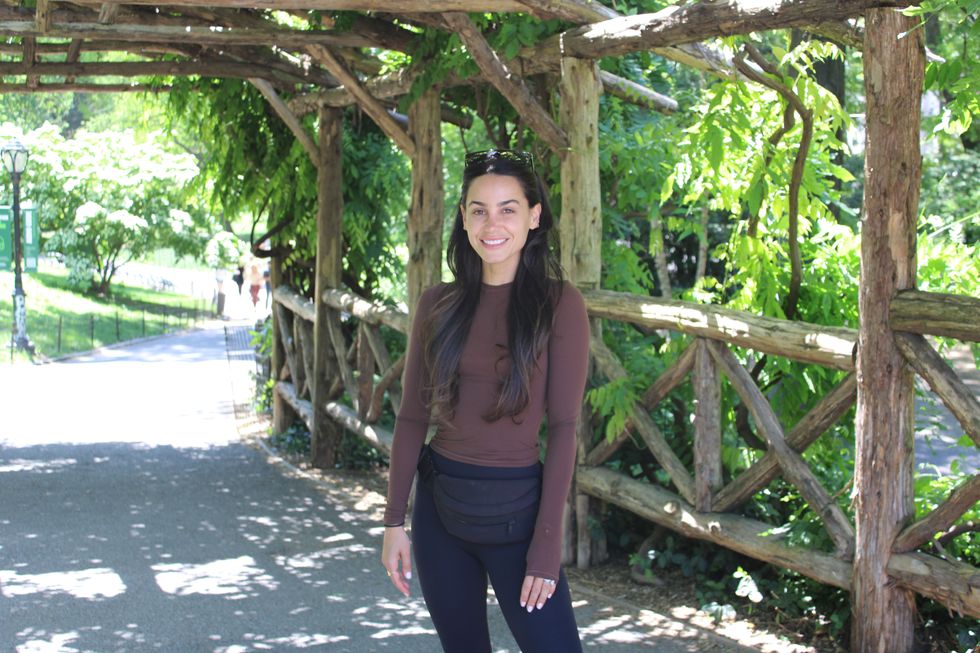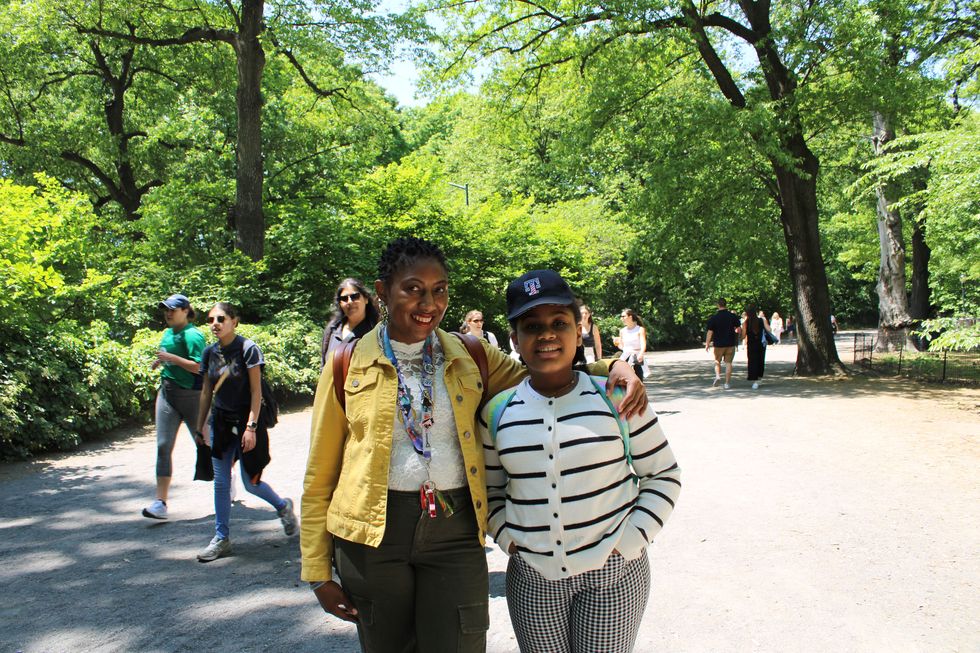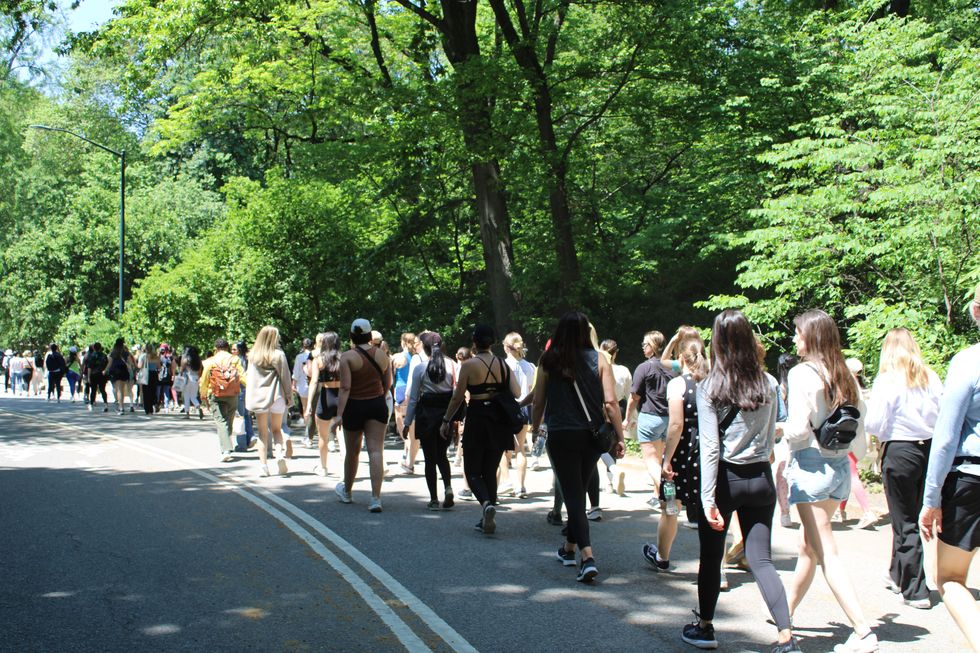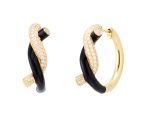In March 2022, Brianna Kohn felt something was missing. The telltale signs of the pandemic had left everyday city life, but with that, so had most of her close girlfriends, who had moved out of New York in the meantime. The women she would typically call up for a cup of coffee, a walk, or just to hang out, were suddenly gone. “I felt lonely,” the 29-year-old tells me. “I have a big family, but nobody was living in New York at that time. I missed my core group of friends.” Kohn decided to post a TikTok asking if anyone would like to join her on a walk. Simple. Straightforward. “I thought, ‘Maybe I’ll get coffee with a couple of girls,’” she recalls. “And at the first walk we had over 250 girls show up.”
That first stroll has now morphed into City Girls Who Walk, a New York walking club that has women strutting into Central Park by the hundreds every Sunday. “Sometimes we have 100,” Kohn says, “Sometimes we have 300, sometimes we’ll have 600. And most of these girls come alone.” After the tumultuous COVID-19 years that reshaped all of our lives, the initiative has become a way for women to navigate their social existence. “I work from home,” first-time attendee Clordine Roman, 28, tells me, clutching an iced coffee. “So I don’t have a lot of that ability to just meet friends in the office and go out with my co-workers.”
Six hundred women putting on their walking shoes on a Sunday morning, yearning for a connection is a striking thought. Manhattan may be a crowded metropolis, but building actual, meaningful friendships is another matter entirely. “It’s such a big city,” Kohn tells me. “You live alone, you do things alone. People go to work, come home, and just want to relax…you’re not really meeting as many people as you’d like.”
Loneliness is the most widespread health issue in America today, more so than obesity, diabetes, or cardiovascular disease. According to a Cigna study, more than half of American adults feel lonely, and although we spent our socially distanced years isolated and indoors, the pandemic has not actually left us significantly lonelier than before. The fact that, in New York City, one million people live alone doesn’t help. Loneliness isn’t just an uncomfortable state of mind; social isolation can have physical ramifications so grave it has been likened to daily smoking. We often associate loneliness with seniority, an image of elderly people cooped up inside. However, young adults are twice as likely to be lonely than seniors—a whopping 79 percent of 18- to 24-year-olds report feelings of loneliness. Social isolation is a risk factor for depression, and mental health concerns have soared in the past few years. Today, the mental health crisis affects young women in particular, with more than twice as many of them reporting persistent sadness than their male counterparts.
No wonder those walking shoes are getting worn in. “To see 300 girls who are all feeling the same way,” Kohn tells me, “it’s crazy. It’s awesome too—to see that people are wanting to make that connection and actually make new friends.” A loyal attendee since the early days, Leanna Peters, 38, turns up to Central Park with her 10-year-old daughter Alexeanna. A year ago, she wanted to see what all the fuss was about. “I met a couple of wonderful people, and then we connected over the next couple of months,” she tells me, “Sometimes, if they’re available, we meet up and we all walk together. And if not, I just meet new people.”
Whereas, in the beginning, the women joining the walks were mostly in their 20s and 30s, women of all ages are now trotting the park’s pathways. “It’s a beautiful vibe,” says Miriam Cortea, 60, who has joined six times with her dog, Rosie. “Two weeks ago,” she tells me, “I brought my grandkids and they loved it—a 10- and 8-year-old.”
But loneliness isn’t just an idiosyncrasy of living in New York, and it isn’t a uniquely American problem, either. Women all over the country—and abroad—have taken a page from Kohn’s book and founded their very own City Girls Who Walk in their respective cities. Los Angeles, Boston, Washington D.C., Dubai, Chicago, Lisbon, Phoenix, Detroit, Philadelphia, Stockholm—Kohn estimates there are now close to 200 cities out there. Inspired by the endeavors in New York, and later on Chicago, City Girls Who Walk Houston founder Tiffany Nelson loves the “wholesomeness and simplicity” of her group. “We’ve grown into so much more than weekly walks,” Nelson tells me, now hosting activities from brunch to wellness events to “Woman-Owned Wednesday,” intended to amplify female-owned businesses in Houston.
Word traveled fast. Apparently, all you need is a young woman with an internet connection and an appetite for a richer social life to make new friends. After Fernanda Grace, 37, moved from California to Barcelona, she, too, missed having a tight-knit group around her. In December, the very first City Girls Who Walk in Europe was established. “These strangers have become amazing friends with whom I can share laughter and tears,” Grace says, “they have become the most wonderful adventure buddies I could have ever wished for.” Other European cities quickly followed suit. Just last month, Emma White, 28, started City Girls Who Walk Dublin, saying she notices “a deep need for connection” among women. As a yoga teacher, White also plans on incorporating her practice into her newfound endeavor. “We are going to start charity-based park yoga over the summer months,” she tells me, “with a focus on women’s charities such as cervical cancer [funds] and domestic violence support.”
Back in New York, Kohn also plans on expanding City Girls Who Walk. One of the things on her bucket list is networking events, because “for women looking for jobs, this is such a good way for them to network and try to see if there are any opportunities they want that they don’t know about.” A year into City Girls Who Walks, the group now serves a different purpose for Kohn. “I met a lot of girls, and they’re all amazing,” she says, “but now I’m seeing how many connections are being formed with the girls. That’s more important to me.” Every Sunday, at noon, she’ll be there, ready for a walk. “I get there,” she says upon seeing hundreds of women mingling with one another, “and I’m like: this is exactly why I started it.”

Freelance Writer
Noëlle de Leeuw is a freelance writer based in Amsterdam, the Netherlands. Her work has previously been published in such titles as The Washington Post, Harper’s Bazaar Netherlands, and Food52. When Noëlle isn’t writing, she can be found cooking pasta for friends or rewatching her favorite romcoms for the umpteenth time.










